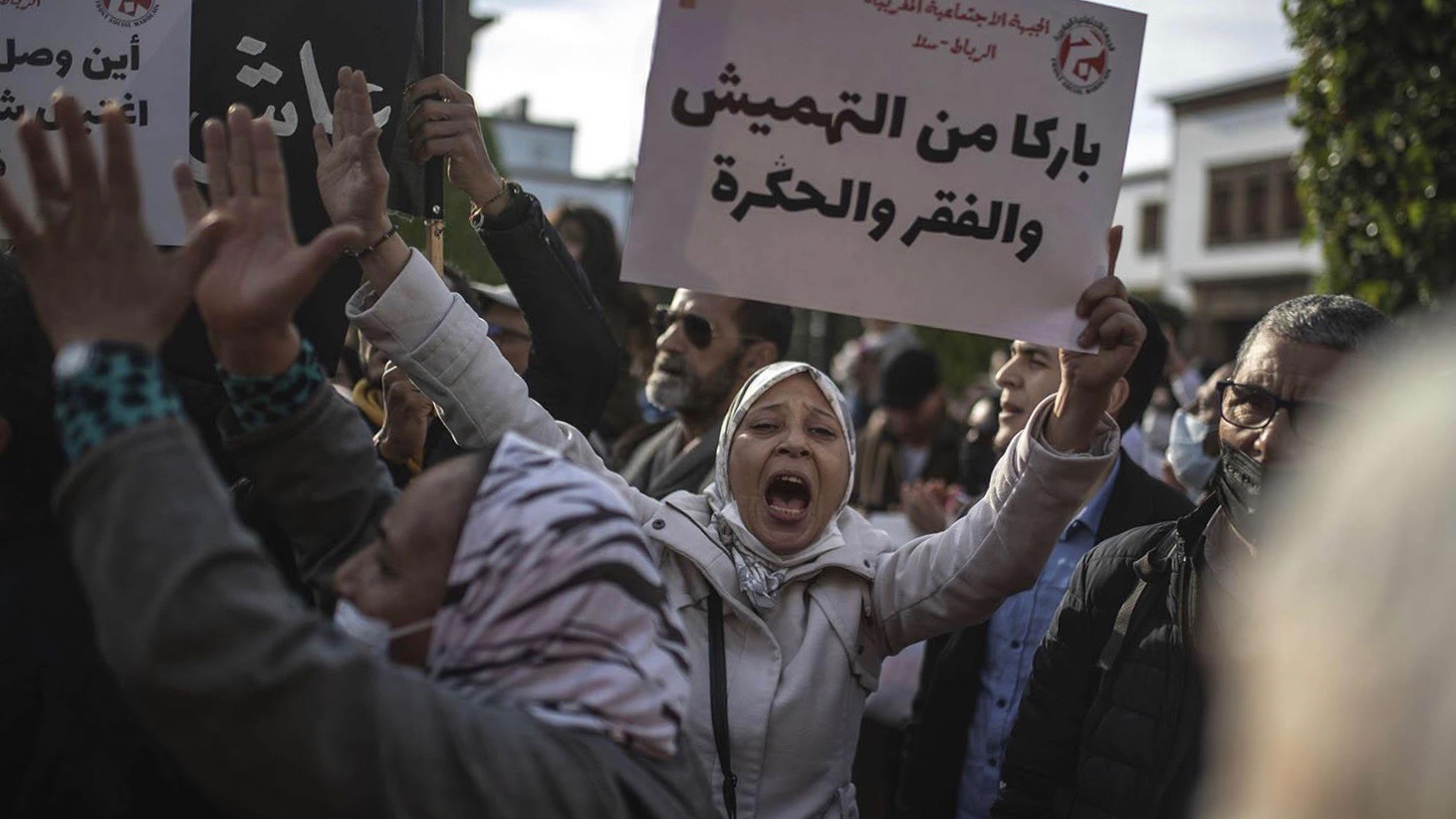Morocco witnessed massive countrywide protests on Sunday, February 20, over rising inflation and government inaction. The prices of essential items such as food and fuel and other basic commodities have seen a steep rise in the country. Thousands of Moroccans participated in the protests in cities like capital Rabat, Casablanca, Tangier, Tez, Oujda, and in the province of Kenitra. The protesters denounced the government of Prime Minister Aziz Akhannouch for failing to prevent inflation from spiraling out of control, with many important items becoming unaffordable for ordinary Moroccans.
The protests also commemorated the 11th anniversary of the February 20 movement, inspired by the Arab Spring pro-democracy uprisings in the region in 2011. The movement had demanded extensive political, judicial and constitutional reforms to make Morocco more democratic, where ordinary citizens have a say in the country’s political future. In response to the movement, Moroccan king Mohammed VI promised constitutional reforms. A new constitution was formed which was approved in July 2011, followed by elections in November in which an elected government led by the Justice and Development Party came to power. However, for many, the new constitution did not go nearly far enough in limiting the powers of the monarchy and creating a true democracy.
Sunday’s protest in the center of Rabat saw hundreds of protesters gathered outside the parliament building holding up banners and chanting slogans against the government. Besides the issue of inflation, protesters demanded improvement in civil liberties and government action to resolve the long standing problems of social inequity and social injustice. As per reports, a large police presence was seen around the site of the protests for monitoring.
In other places, protesters carried out similar actions denouncing the government for the rising inflation. Some even demanded the government step down due to incompetence. Clashes were reported in the weekly Oulad Jelloul market in Kenitra between consumers and shopkeepers over speculation around prices of certain goods which has led to an increase in their rates. In Tangier, protesters also opposed the compulsory vaccination rule for COVID-19. Banners reading “we are steadfast, steadfast … refuse of certificate (of vaccination)” were seen during the protest. Protesters in Casablanca called upon the government to release all political prisoners.
The crisis of inflation in Morocco and the wider Maghreb region of North Africa has been brewing for a while but has accelerated in the last few years, aggravated by high global energy prices and severe drought. Average rainfall in Morocco for the last rainy season was reported to be 64% lower than normal. The government has blamed the price rise on the economic damage inflicted by the COVID-19 pandemic that has led to general rise in global prices of basic goods and commodities including oil due to disrupted production, supply chain problems and other related logistical issues. In response to the protests, the minister delegate in charge of the budget, Fouzi Lekjaa, was quoted as saying that the government is doing its best to handle the issue and has introduced multiple measures to reduce prices and alleviate the pressure felt by households. He however admitted that the measures so far have been “insufficient”.





